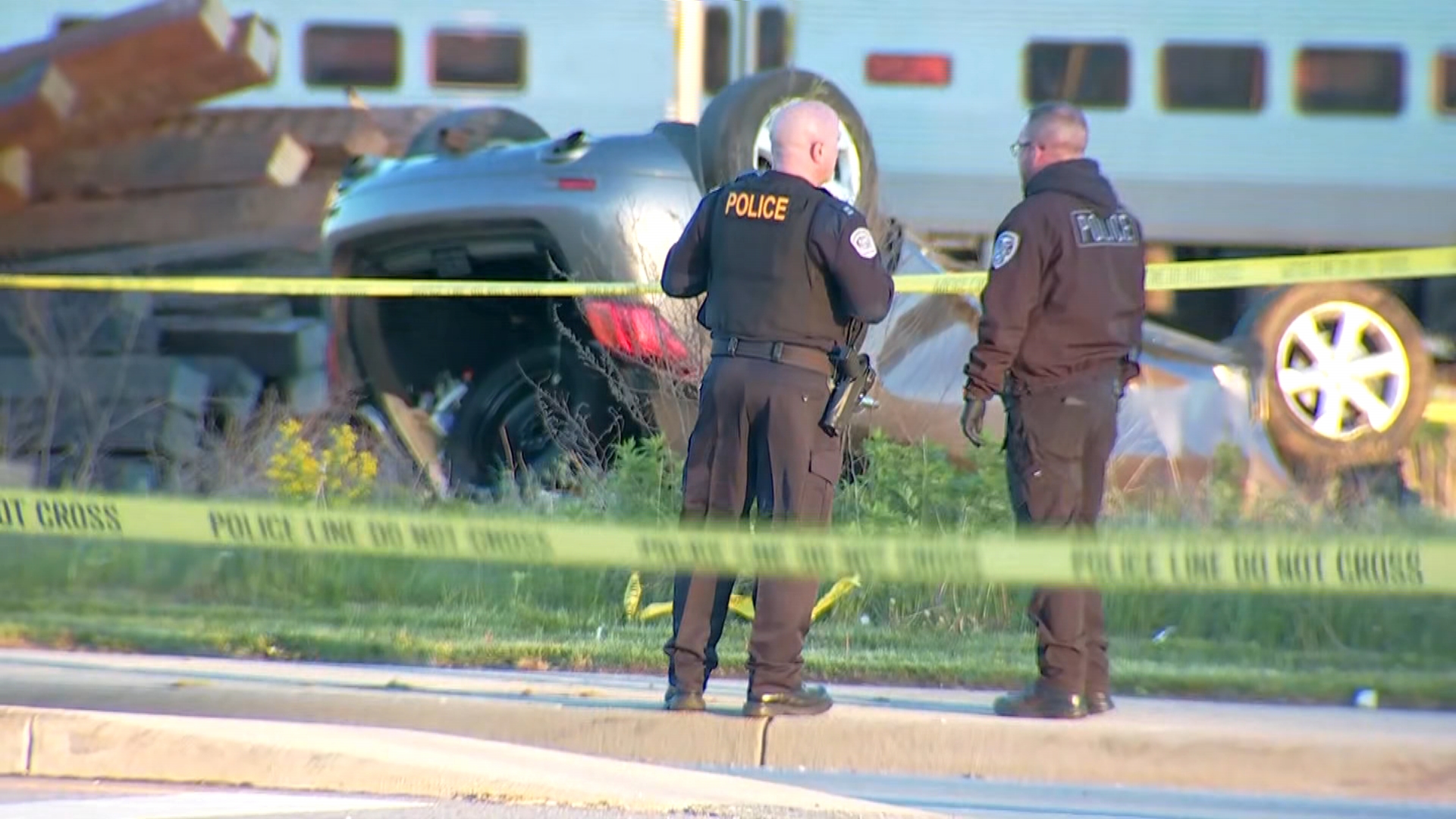In his first speech as Pope Francis’ successor, uttered from the loggia of St. Peter’s Basilica, Pope Leo XIV's words and decisions have been heavily scrutinized as indicators of the views he will bring to the Catholic Church.
“Peace be with you," he began, before he went on to emphasize a message of "a disarmed and disarming peace" dialogue and missionary evangelization.
Stream NBC 5 for free, 24/7, wherever you are.
He wore the traditional red cape and trappings of the papacy — a cape that Francis had eschewed on his election in 2013 — suggesting a return to some degree of tradition after Francis' unorthodox pontificate.
“I would also like to thank all my brother cardinals who have chosen me to be the successor of Peter and to walk together with you as a united church, always trying to find peace, justice, and always trying to work as men and women faithful to Jesus Christ, without fear,” the pope said in near-perfect Italian, mentioning the saint considered the first pope.
But while his wardrobe may have signaled tradition, Pope Leo, formerly known as Robert Prevost, was already considered by Pope Francis as a possible successor.
Francis, history's first Latin American pope, clearly had his eye on Prevost and in many ways saw him as his heir apparent. He sent Prevost to take over a complicated diocese in Peru, then brought him to the Vatican in 2023 to serve as the powerful head of the office that vets bishop nominations from around the world, one of the most important jobs in the Catholic Church. And in January Francis elevated Prevost into the senior ranks of cardinals, giving him prominence going into the conclave that few other cardinals had.
Local
But in the lead-up to his election, Prevost was described as having a more balanced approached, when compared to Francis' inclusivity.
In a New York Times report published last week, Rev. Michele Falcone, a priest in the Order of St. Augustine previously led by Leo, described his mentor and friend as the “dignified middle of the road.”
Feeling out of the loop? We'll catch you up on the news you need to know with the Chicago Catch-Up newsletter.
That same report indicated Leo's views on LGBTQ rights differ from his predecessor, noting that in a 2012 address to bishops, he lamented what he described as a “sympathy for beliefs and practices that are at odds with the gospel," specifically citing the “homosexual lifestyle” and “alternative families comprised of same-sex partners and their adopted children.”
Meanwhile, Vatican watchers said the decision to name himself Leo was particularly significant given the previous Leo's legacy of social justice and reform, suggesting continuity with some of Francis' chief concerns.
Vatican spokesman Matteo Bruni confirmed that choice of the name Leo was a reference to Leo XIII and the social doctrine of the church, in particular the Rerum Novarum encyclical, considered the Catholic Church's first social encyclical.
Leo XIII was an Italian who led the church from 1878 to 1903. That Leo softened the church’s confrontational stance toward modernity, especially science and politics and laid the foundation for modern Catholic social thought, most famously with his 1891 encyclical Rerum Novarum, which addressed workers’ rights and capitalism at the beginning of the industrial revolution.
“I think this pope is saying something about social justice by choosing this name, that it is going to be a priority. He is continuing a lot of Francis’ ministry,’’ said Natalia Imperatori-Lee, the chair of religious studies at Manhattan University in the Bronx.
During his 12-year papacy, Francis sought to remake the U.S. hierarchy, and with Prevost's help starting in 2023, named more pastorally minded bishops to replace culture warriors favored by Popes Benedict XVI and John Paul II.
Significantly, Leo presided over one of the most revolutionary reforms Francis made, when he added three women to the voting bloc that decides which bishop nominations to forward to the pope.
"I think it is going to be exciting to see a different kind of American Catholicism in Rome,’’ Imperatori-Lee said.
The new pope was formerly the prior general, or leader, of the Order of St. Augustine, which was formed in the 13th century as a community of “mendicant” friars — dedicated to poverty, service and evangelization. The Order of St. Augustine's ethos includes a contemplative spirituality, communal living and service to others. A core value in their rule is to “live together in harmony, being of one mind and one heart on the way to God.”
More is expected to be learned as Leo is slated to celebrate Mass with cardinals in the Sistine Chapel on Friday, and deliver his first Sunday noon blessing from the loggia of St. Peter's.



